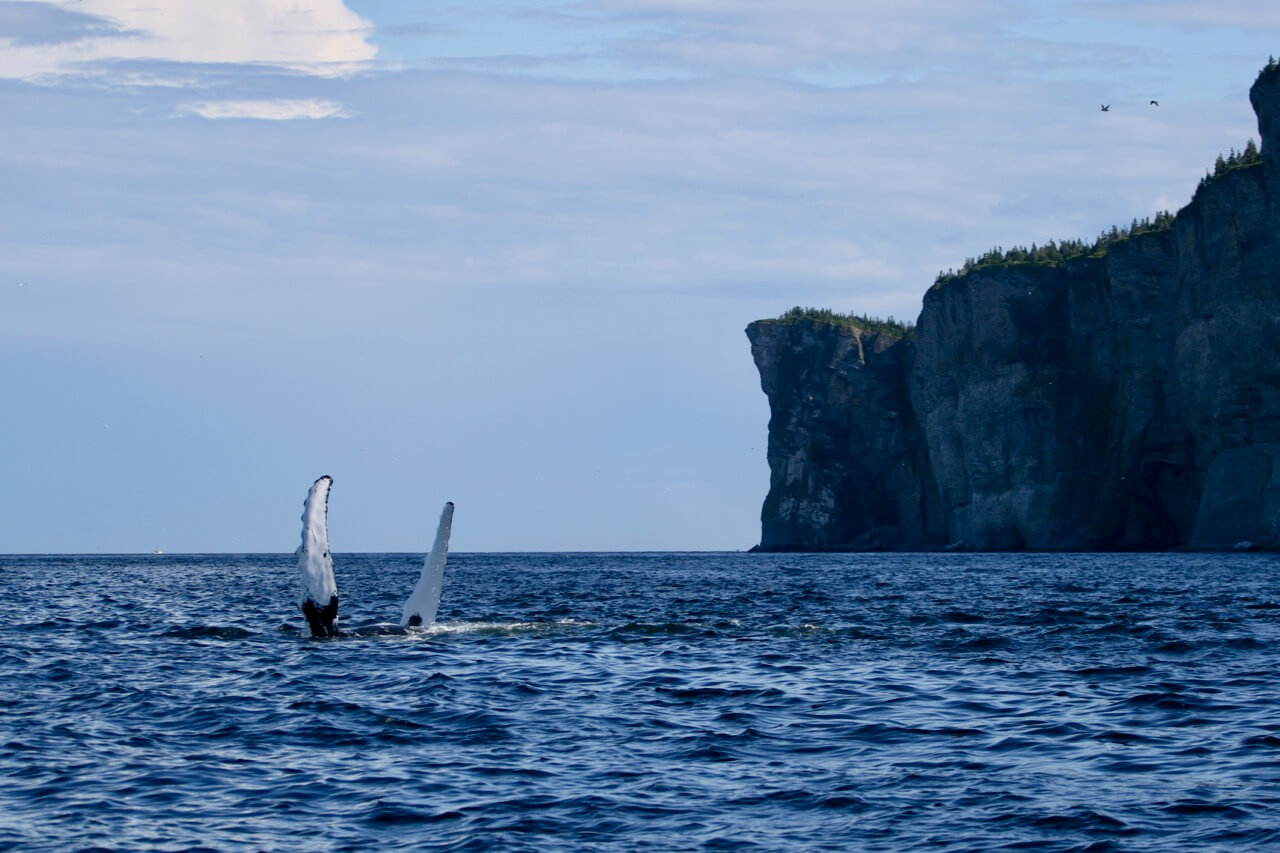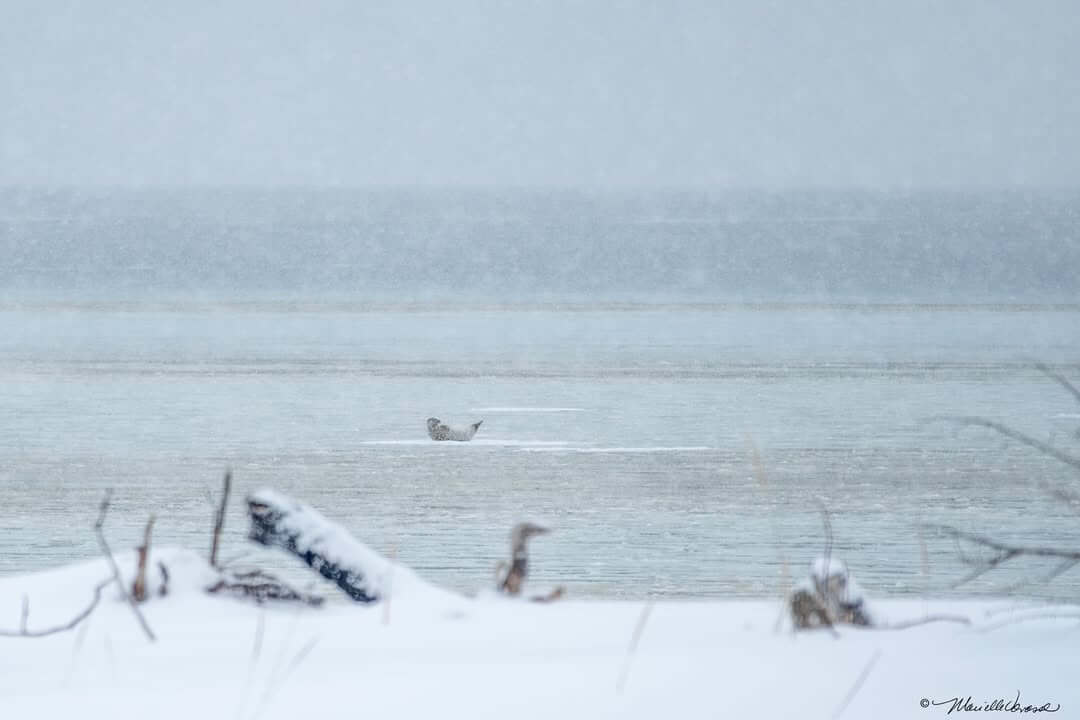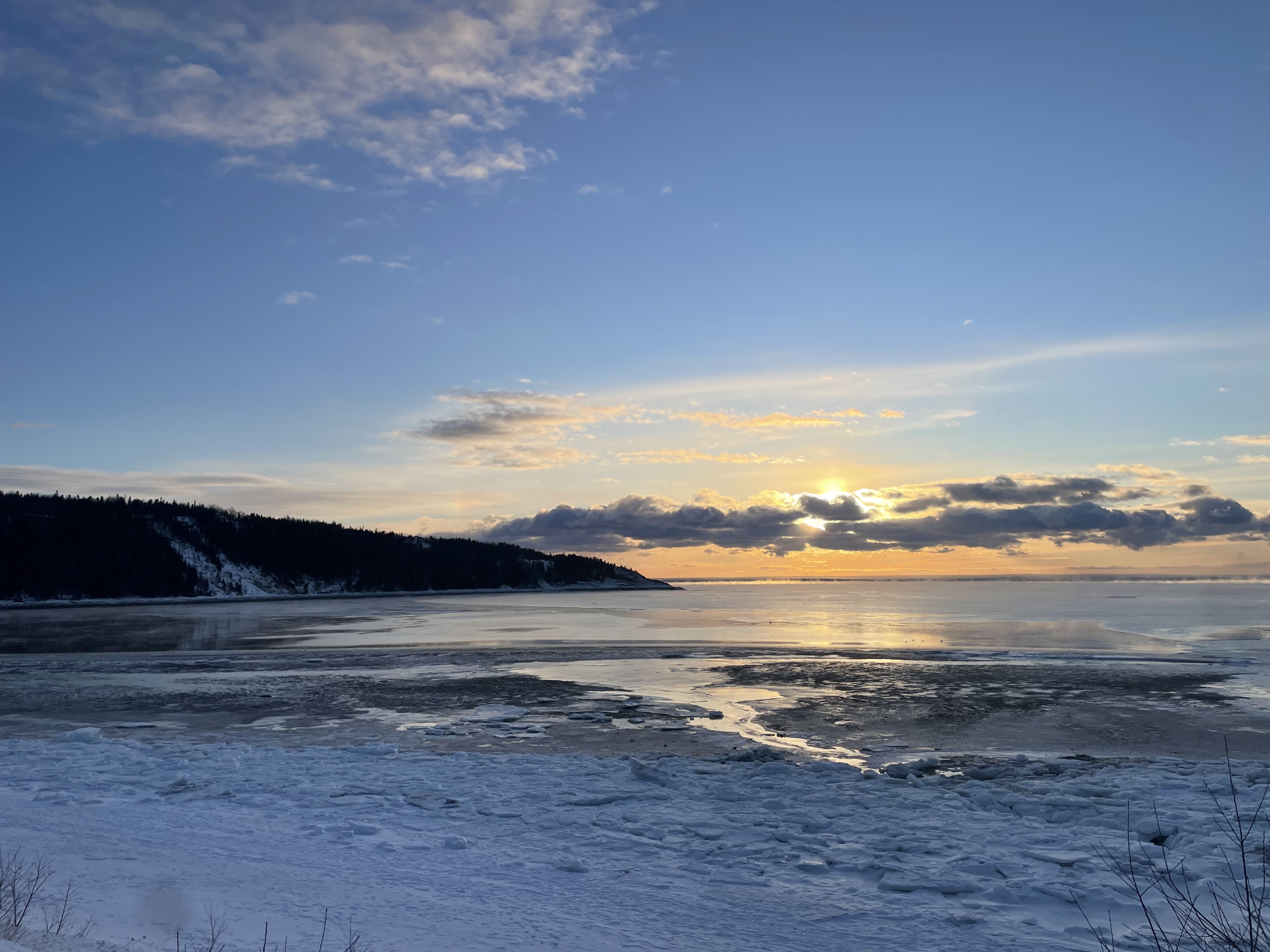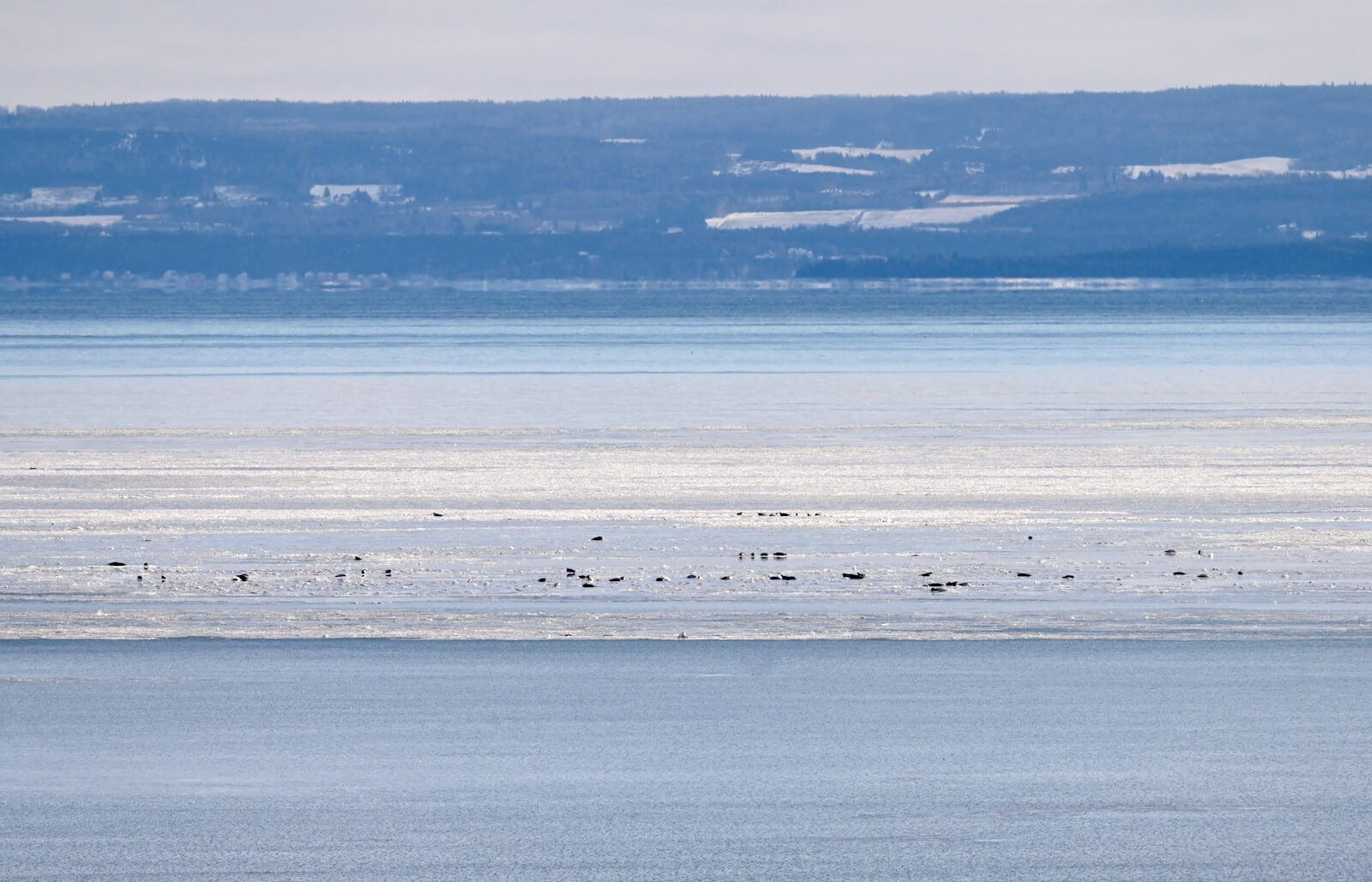The jagged black-and-white tails of humpback whales are prompting shouts of joy from observers in Les Bergeronnes, Franquelin and Port-Cartier’s Rivière-Pentecôte sector this week. The presence of this species in the St. Lawrence is relatively recent and, since 2018, the number of individuals observed has been increasing significantly. Imagine: in the Estuary, it wasn’t until the year 2000 that more than two individuals were identified every summer!
In 2019, there’s even talk about a record year for humpbacks. The Mingan Island Cetacean Study (MICS), which manages the photo-identification catalogue of humpbacks in the St. Lawrence, recently published the results of last summer’s census. A total of 129 different individuals were photographed by MICS, GREMM and their various collaborators. Of these, 108 are individuals that are already known to researchers. Another piece of good news is that 14 newborns have been observed.
Humpback whales come to the St. Lawrence to feed. Some individuals seem more loyal to certain sectors, such as the Gaspé, the Estuary or the waters of the Mingan Archipelago. Others, however, visit different regions. It’s more or less the same situation that can be observed with fin whales.
Will the fin whale observed off the Manicouagan Peninsula at Pointe-Lebel on May 18 remain in the area all summer long? Perhaps. But it may also be one of those individuals observed off Port-Cartier in the past few days. Or, perhaps, this individual is responsible for the giant spout spotted in Gaspé Bay on May 20.
Several observers have also been reporting the presence of multiple species during the same observation session. For example, off Sept-Îles, blue whales – including B360 – fin whales, porpoises and minke whales, not to mention harbour seals, are seen swimming in close proximity. Are they taking advantage of the capelin that have been “rolling” these days in several parts of the North Shore?
On May 19 in Franquelin, one observer admires a herd of some fifty seals surrounded by three or four diving minke whales, not far from which is a humpback.
It must be a smörgåsbord down below!
In Havre-Saint-Pierre, a worker exclaims from the second storey: “Minke whale! My first of the season!” The whale is surface feeding. Its throat swells as it engulfs water and prey before spitting the water back out through its baleen. Now it just has to swallow its prey.
Off the coast of Les Bergeronnes, a birder captures the well marked dorsal fin of a minke whale. The photos were then sent to Mériscope, which maintains a photo-identification catalogue for this species in the Estuary. Researcher Dany Zbinden was able to recognize this individual as Ba100, a.k.a. “Chicken”. This minke whale is at least 12 years old. “This animal that has been teasing me for two years now… Every time I get ready to take a biopsy, it swims away, usually at the last second, and this is the behaviour that earned it its nickname,” explains Dany Zbinden in an email.
In the Saguenay-St. Lawrence Marine Park, beluga observations have been frequent of late. Good news for hikers on the North Shore: the Fjord-du-Saguenay National Park is reopening a portion of its trail network. Likewise, the Halte-Béluga viewpoint overlooking Baie Sainte-Marguerite is once again accessible.






